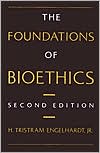Category Books
- Fiction Books & Literature
- Graphic Novels
- Horror
- Mystery & Crime
- Poetry
- Romance Books
- Science Fiction & Fantasy
- Thrillers
- Westerns
- Ages 0-2
- Ages 3-5
- Ages 6-8
- Ages 9-12
- Teens
- Children's Books
- African Americans
- Antiques & Collectibles
- Art, Architecture & Photography
- Bibles & Bible Studies
- Biography
- Business Books
- Christianity
- Computer Books & Technology Books
- Cookbooks, Food & Wine
- Crafts & Hobbies Books
- Education & Teaching
- Engineering
- Entertainment
- Foreign Languages
- Game Books
- Gay & Lesbian
- Health Books, Diet & Fitness Books
- History
- Home & Garden
- Humor Books
- Judaism & Judaica
- Law
- Medical Books
- New Age & Spirituality
- Nonfiction
- Parenting & Family
- Pets
- Philosophy
- Political Books & Current Events Books
- Psychology & Psychotherapy
- Reference
- Religion Books
- Science & Nature
- Self Improvement
- Sex & Relationships
- Social Sciences
- Sports & Adventure
- Study Guides & Test Prep
- Travel
- True Crime
- Weddings
- Women's Studies
The Foundations of Bioethics » (2nd Edition)

Authors: H. Tristram Engelhardt
ISBN-13: 9780195057362, ISBN-10: 0195057368
Format: Hardcover
Publisher: Oxford University Press, USA
Date Published: January 1996
Edition: 2nd Edition
Author Biography: H. Tristram Engelhardt
Baylor College of Medicine
Book Synopsis
This is the first single-author text on the philosophical issues in bioethics that is both systematic and comprehensive. Engelhardt provides both a critique of the theoretical foundations of bioethics and an analysis of the problematic ways in which facts, theories and values become intertwined in concepts of health and disease. He analyzes patients' rights, including the right to free and informed consent, to refuse treatment, and to the benefits of health care. Covering topics that range from abortion and in vitro fertilization to sexual deviance and organ transplantation. Englehardt offers a critical and at times controversial analysis, defending such practices as fetal experimentation and limited infanticide.
Doody Review Services
Reviewer:Patricia A. Marshall, PhD(Loyola University Medical Center)
Description:This book explores the possibility of secular philosophical reasoning for moral collaboration between individuals with profoundly diverse perspectives and values. The first edition of this book was published in 1986. This second edition reconsiders the intellectual bases of bioethics and topics such as the nature of the person and definitions of death in a multicultural world. New material is included on the allocation of scarce resources and healthcare reform.
Purpose:Engelhardt aims to develop a moral justification for a secular ethic. He argues against universalizing agendas in contemporary bioethics. He believes that all forms of moral commitments in large-scale secular societies should be private because of the diverse spectrum of competing moralities. Yet, he does not minimize the significance of specific moral traditions. Engelhardt attempts to dispel criticisms that the first edition was his libertarian manifesto. For example, the principle of autonomy is renamed the "principle of permission" to emphasize that secular moral authority involves necessarily the acquiescence of individuals united by a common concern. Overall, Engelhardt is successful in achieving his objectives for the book.
Audience:This book would interest healthcare providers and policy analysts, bioethicists, philosophers, and social scientists. It would be particularly interesting for those who are familiar with Engelhardt's earlier articulation of secular ethics.
Features:The book includes extensive notes and references at the end of each chapter. The index is extremely helpful in locating discussions of specific topics and individuals.
Assessment:Confusion and disagreements will arise inevitably in the search for effective ways to resolve moral dilemmas in a multicultural society. Engelhardt does not suggest that a secular philosophical approach is the only response to ethical controversy in the face of moral diversity. However, he develops a strong justification for this approach because of its potential for eliciting cooperation between moral strangers. This book contributes substantially to the literature on bioethics in a postmodern world. It is insightful and well written. I recommend it highly.
Table of Contents
| 1 | Introduction: bioethics as a plural noun | 3 |
| 2 | The Intellectual Bases of Bioethics | 32 |
| 3 | The Principles of Bioethics | 102 |
| 4 | The Context of Health Care: Persons, Possessions, and States | 135 |
| 5 | The Languages of Medicalization | 189 |
| 6 | The Endings and Beginnings of Persons: Death, Abortion, and Infanticide | 239 |
| 7 | Free and Informed Consent, Refusal of Treatment, and the Health Care Team: The Many Faces of Freedom | 288 |
| 8 | Rights to Health Care, Social Justice, and Fairness in Health Care Allocations: Frustrations in the Face of Finitude | 375 |
| 9 | Reshaping Human Nature: Virtue with Moral Strangers and Responsibility without Moral Content | 411 |
| Index | 427 |
Subjects
 Ethics & Moral Philosophy
Ethics & Moral PhilosophyMedical Books
 Medicine
Medicine  Administration & Management
Administration & ManagementNonfiction
 Philosophy
Philosophy  Major Branches of Philosophical Study
Major Branches of Philosophical StudyPhilosophy
 Major Branches of Philosophical Study
Major Branches of Philosophical Study  Ethics & Moral Philosophy
Ethics & Moral PhilosophyScience & Nature
 Biology
Biology  Biology - General & Miscellaneous
Biology - General & MiscellaneousScience & Nature
 Philosophy of Science
Philosophy of Science  Bioethics
BioethicsScience & Nature
 All Science & Nature
All Science & Nature  Biology & Life Sciences
Biology & Life SciencesScience & Nature
 All Science & Nature
All Science & Nature  Science - General & Miscellaneous
Science - General & MiscellaneousNonfiction
 Medicine
Medicine  Medicine
MedicineNonfiction
 Science & Nature
Science & Nature  Biology
BiologyNonfiction
 Science & Nature
Science & Nature  Philosophy of Science
Philosophy of ScienceNonfiction
 Science & Nature
Science & Nature  All Science & Nature
All Science & Nature
